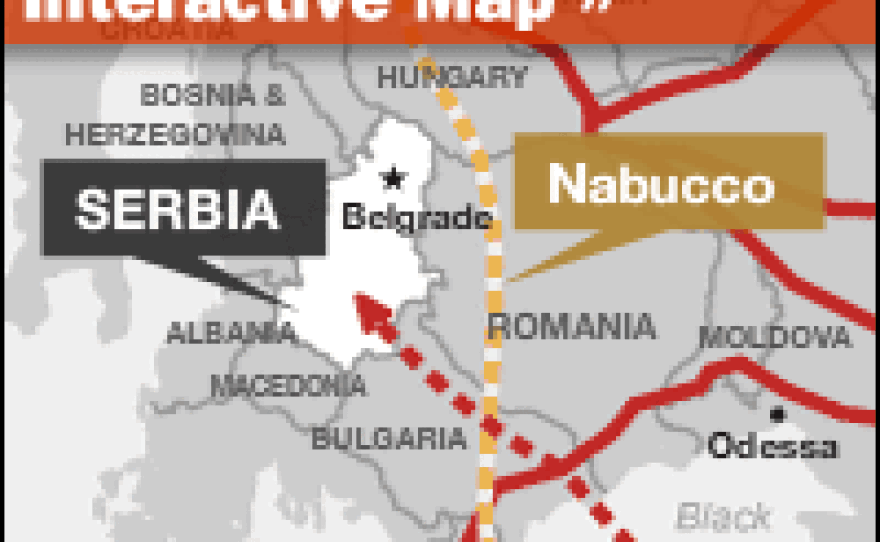The dispute between Russia and Ukraine over the price of natural gas is causing energy shortages across Europe.
All shipments from Russia's gas company, Gazprom, through Ukraine have now stopped, and the European Union has called on Moscow and Kiev to take urgent action to solve their dispute.
The stoppage comes just as a winter freeze envelops much of Europe. In Paris, the Eiffel Tower was closed because of snow and ice. And in Berlin, temperatures dropped to minus 4 degrees Fahrenheit.
France gets less than 20 percent of its gas from Russia. But in Germany, Europe's largest economy, the figure is twice that. German energy firms warned Tuesday that there could be gas shortages if the dispute drags on and subzero temperatures persist.
But the countries worst hit by the feud are those in central and southeast Europe. And Bulgaria and Slovakia, which get all their gas from Russia, have declared states of emergency. In Bulgaria, at least 10,000 people have no heat in their homes.
The country has lost 100 percent of gas supplies coming from the Ukrainian route, says Galina Tosheva, Bulgaria's deputy energy minister. There is some gas in storage, but it would cover only about 30 to 35 percent of daily demand, she says.
The European Union is furious. It accused both Russia and Ukraine of using consumers across Europe as pawns in their quarrel.
"Without prior warning and in clear contradiction with the reassurances given by the highest Russian and Ukrainian authorities to the European Union, gas supplies have been cut. This situation is completely unacceptable," says Johannes Laitenberger, an EU spokesman.
Two years ago, a similar dispute between Russia and Ukraine cut off gas supplies to Europe for three days. That crisis led to criticism of Russia as an unreliable energy partner and spurred talk of finding ways to diversify the continent's energy supply.
But nothing has really been done, says Ian Cronshaw, an analyst with the Paris-based International Energy Agency.
"Up until recently, Russia has been an extremely reliable supplier of more than 40 years, starting back in the 1960s, almost at the height of the Cold War," Cronshaw says. "Europe is making efforts to build more pipelines, but Europe does need to do much more in terms of diversifying its power supply and to make its market work much, much more efficiently so that gas can be moved around between different countries."
Cronshaw says a perfect example of Europe's inaction is the Nabucco pipeline. The project would bring natural gas 2,000 miles from Central Asia to Europe without going through either Russia or Ukraine. The pipeline was due to be completed in 2013 — but construction hasn't even begun.
Copyright 2022 NPR. To see more, visit https://www.npr.org. 9(MDAzMjM2NDYzMDEyMzc1Njk5NjAxNzY3OQ001))







